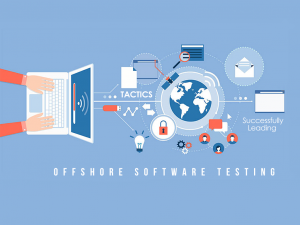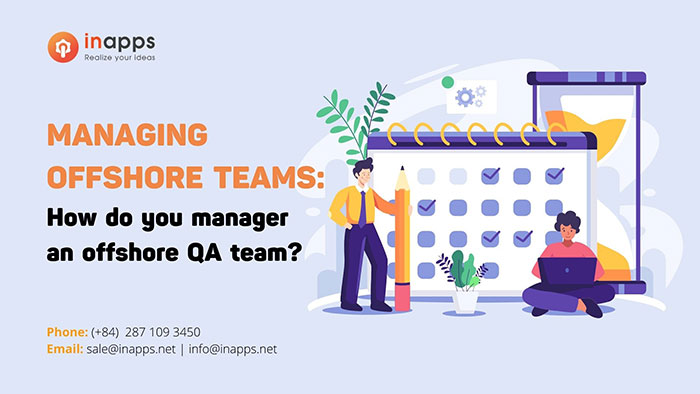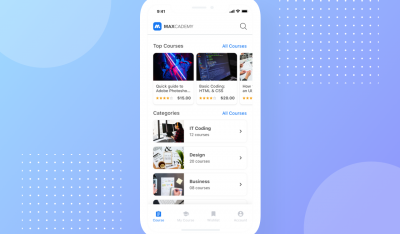- Home
- >
- Offshore News
- >
- How do you manage an offshore QA team?
The Quality Assurance process, much like product development, varies in scale, type, and complexity throughout different stages of a project. It’s essential to continuously perform QA to ensure all customer specifications are met and to identify bugs as early as possible, making them easier and cheaper to fix. Managing an offshore QA team effectively is crucial to this process. Do you know the best strategies to manage offshore QA teams?
Let’s find out!
Key Summary
- Overview: The article provides a comprehensive guide on effectively managing an offshore QA team, emphasizing strategies for communication, collaboration, and quality control, with insights from InApps Technology on leveraging Vietnam’s skilled QA professionals.
- Key Strategies for Managing an Offshore QA Team:
- Clear Communication:
- Establish regular communication channels using tools like Slack, Microsoft Teams, or Zoom to bridge time zone gaps.
- Define clear expectations for testing scope, deliverables, and timelines in detailed documentation.
- Use asynchronous updates (e.g., via Jira or email) to accommodate time differences, ensuring alignment.
- Define Roles and Responsibilities:
- Assign specific roles (e.g., manual testers, automation engineers, test lead) to avoid overlap and confusion.
- Provide a detailed QA plan outlining test cases, environments, and success criteria.
- Ensure the team understands the project’s business context and user requirements.
- Select the Right Tools:
- Use test management tools like TestRail or Zephyr for organizing test cases and tracking progress.
- Implement bug-tracking systems (e.g., Jira, Bugzilla) for efficient issue reporting and resolution.
- Employ automation tools like Selenium, Appium, or Cypress for repetitive testing tasks.
- Integrate CI/CD pipelines (e.g., Jenkins, GitLab CI) for continuous testing.
- Cultural Alignment:
- Understand cultural nuances (e.g., Vietnam’s collaborative work style) to foster trust and teamwork.
- Conduct team-building activities, such as virtual coffee chats or workshops, to strengthen relationships.
- Provide cultural sensitivity training for onshore teams to enhance collaboration.
- Agile Methodologies:
- Adopt Agile practices with daily standups, sprint planning, and retrospectives to maintain transparency.
- Involve QA early in the development cycle (shift-left testing) to catch issues sooner.
- Use iterative testing cycles to adapt to changing requirements.
- Quality Control and Metrics:
- Define KPIs like defect density, test coverage, and bug resolution time to measure performance.
- Conduct regular code and test case reviews to ensure consistency and accuracy.
- Use automated reporting tools to track progress and identify bottlenecks.
- Training and Skill Development:
- Provide access to training on the latest QA tools, frameworks, and industry standards.
- Encourage certifications (e.g., ISTQB, Selenium) to enhance expertise.
- Pair offshore testers with onshore mentors for knowledge transfer.
- Time Zone Management:
- Schedule overlapping hours for real-time collaboration (e.g., Vietnam’s GMT+7 aligns partially with U.S. mornings).
- Use shared calendars and scheduling tools (e.g., Calendly) to coordinate meetings.
- Delegate tasks to allow independent work during non-overlapping hours.
- Clear Communication:
- Benefits of Offshore QA Teams in Vietnam:
- Cost Efficiency: Rates of $20-$50/hour, compared to $80-$150/hour in the U.S./EU, saving 20-40%.
- Skilled Talent: Vietnam’s 200,000+ IT professionals include QA experts proficient in manual and automated testing.
- English Proficiency: Strong communication skills facilitate collaboration with global clients.
- Quality Focus: InApps Technology’s vetted QA teams deliver high-quality testing for web, mobile, and enterprise apps.
- Challenges:
- Communication Gaps: Language or time zone differences may cause misunderstandings.
- Quality Consistency: Variations in testing standards require rigorous oversight.
- Cultural Misalignment: Differences in work practices can affect team cohesion.
- Data Security: Offshore teams must comply with privacy regulations (e.g., GDPR, HIPAA).
- Solutions to Challenges:
- Use clear, concise documentation and visual aids to minimize miscommunication.
- Implement standardized testing frameworks and regular audits for consistency.
- Foster cultural integration through onboarding and regular interactions.
- Ensure robust security measures, including NDAs, encryption, and secure tools.
- InApps Technology’s Role:
- Provides pre-vetted QA teams in Vietnam, specializing in manual, automated, and performance testing.
- Offers dedicated project managers to oversee communication, progress, and quality.
- Supports Agile workflows and integrates with client tools for seamless collaboration.
- Use Cases:
- Startups testing MVPs for web or mobile apps on tight budgets.
- Enterprises ensuring quality for complex software (e.g., healthcare, finance).
- SMEs outsourcing QA to focus on core development.
- Recommendations:
- Start with a pilot project to assess the offshore QA team’s fit and performance.
- Invest in robust communication tools and protocols to bridge time zones.
- Define clear KPIs and testing scope to align expectations.
- Partner with InApps Technology for cost-effective, reliable QA services in Vietnam, leveraging their expertise in managing offshore teams.
1. Challenges when managing your offshore QA team
1.1 Communication Barriers
Communication is key in offshore QA team management, but it becomes more challenging with offshore teams. Language differences can lead to misunderstandings. Cultural differences can affect how feedback is given and received. To manage an offshore QA team effectively, establish clear communication protocols and use collaboration tools like Slack or Microsoft Teams.
1.2 Time Zone Differences
Different time zones can hinder real-time collaboration. For example, if your internal team is based in New York and your offshore QA team is in Vietnam, there is an 11 to 12-hour time difference. When your New York team starts their day at 9 AM, it’s already 8 PM or 9 PM in Vietnam. This minimal overlap makes scheduling meetings difficult, limiting real-time communication and collaboration opportunities.
It’s important to find overlapping hours that work for both teams. Rotate meeting times to share the inconvenience fairly. This helps maintain a balanced and productive work environment.
1.3 Quality Control
Ensuring consistent quality between your in-house teams and offshore QA teams can be tough. Your offshore QA teams might have varying standards and practices compared to your internal teams. For example, your internal team might use a specific set of tools and follow certain testing protocols, while the offshore team uses different tools and methods. This can lead to discrepancies in bug reporting and test coverage.
To manage an offshore QA team effectively, standardize QA processes, and provide comprehensive training. For instance, if your internal team uses Selenium for automated testing, make sure the offshore team is also proficient in Selenium. Conduct joint training sessions to align on best practices in QA testing.
During training duration, it’s important to establish clear guidelines and checklists that both teams must follow to ensure consistency in quality. Regular audits and performance reviews can help maintain high standards.
1.4 Trust and Accountability
Building trust with an offshore QA team takes time. Without face-to-face interactions, it’s harder to ensure accountability. Use project management tools like Jira or Asana to track progress and set clear expectations. Regular updates and transparent reporting can build trust and accountability when you manage an offshore QA team.
2. Things to consider when managing your offshore QA team
2.1. Clearly Define Your QA Process to Manage Offshore QA Team
To ensure your final product is consistent and meets all requirements, it’s crucial to define the process at the start of the project clearly. This not only sets clear expectations for the QA team to follow but also helps to outline goals and makes the overall process run much more smoothly.

Offshore QA testing
For instance, this approach might involve:
- Kickoff Meeting: Defining strategies and meeting with key stakeholders to establish responsibilities.
- Identification Phase: Clearly outlining aspects such as costs, potential high-risk areas, and the tools to be used during the project.
- Final Proposal Stage: Identifying the final plan and any improvements to the overall QA process.
2.2. Organize Meetings with Your Offshore QA Team

Offshore QA testing
2.3. Formal Endorsement for Offshore QA Team

Offshore QA facility
4. Hire Experts in Offshore Software QA at InApps Technology
At InApps Technology, we specialize in providing top-tier offshore QA outsourcing services to help clients increase their software development capacity and efficiently turn their ideas into working products. Our experienced offshore QA teams are at your service to design and develop high-quality technical solutions of any complexity.
Why Choose InApps Technology for Offshore QA Services?
- Competitive Hourly Cost
- Clear delivery management and visibility to service metrics
- Transparency and Predictability.
- Close Collaboration.
- Flexible Team Structure.
- Latest Development Methodologies: Agile, Scrum, Extreme Programming (XP) and Test-Driven Development (TDD)
Learn More About Hiring Our Offshore QA Team
Discover how InApps Technology can help you enhance your software development capacity with our expert QA teams. Visit our website or contact us directly to learn more about our services and how we can support your business goals.
Learn more about how to hire offshore QA team:
Let’s create the next big thing together!
Coming together is a beginning. Keeping together is progress. Working together is success.




















